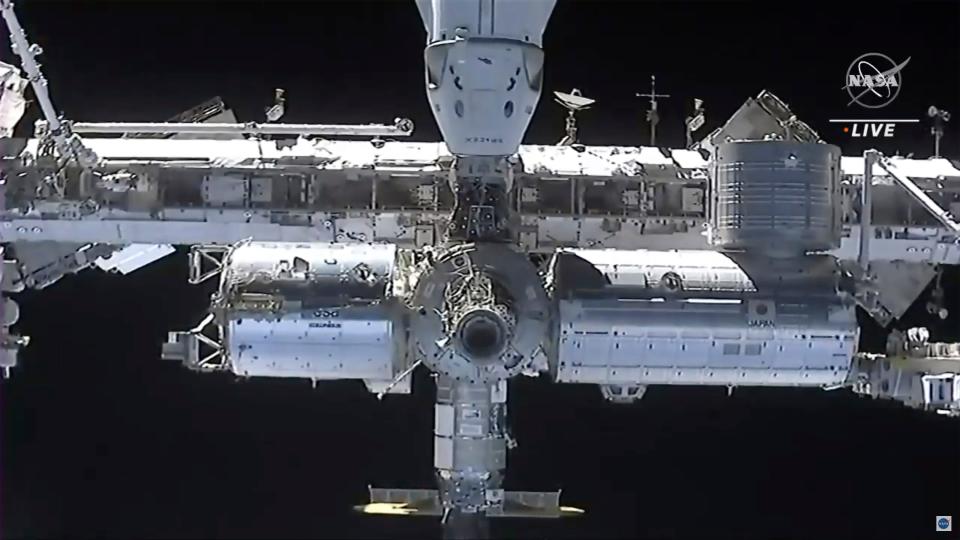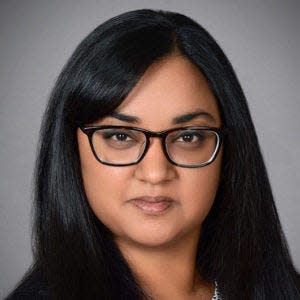Notre Dame professor to advance brain cancer research aboard International Space Station
SOUTH BEND — A SpaceX launch Thursday afternoon aims to advance brain cancer scholarship by University of Notre Dame researchers by bringing an experimental study to the International Space Station.
When it lifts off Thursday afternoon around 4:55 p.m. from Florida's Cape Canaveral Space Force Station, the SpaceX Dragon cargo spacecraft will carry the materials and methods for Notre Dame professor Meenal Datta's study on glioblastoma, an aggressive and incurable form of brain cancer. The self-contained experiment has been automated and is expected to reveal new insights because of the space station's microgravity environment.

“There are all sorts of advantages to studying brain cancer in microgravity,” Datta, a professor in Notre Dame's Department of Aerospace and Mechanical Engineering, said in a statement from the university. “When you study brain tumors on Earth, that usually means studying them in a flat layer in a dish on a benchtop. But the microgravity environment of the ISS provides conditions that in some ways mimic how a tumor would form when it is suspended within the brain’s tissues.”
In microgravity, which is sometimes misleadingly called zero gravity, gravity is very weak, according to NASA. Astronauts can float in their spacecraft and move heavy objects with their fingertips.

In Datta's experiment, the goal is to use microgravity to grow tiny structures called organoids, which stand in for human organs in cancer research, more rapidly than they grow on Earth. The researchers will use organoids to discover how cancerous cells interact with immune cells.
Other Notre Dame researchers have sent studies to the ISS. In 2021, professor Tengfei Luo conducted a groundbreaking study with Space Tango on the formation of bubbles in space.
The latest study is to occur over a 30-day space expedition on the ISS, which orbits Earth roughly 250 miles above the planet's surface. The SpaceX launch is set to arrive at the station around 7:30 a.m. Saturday and will also deliver food, supplies and other research studies to the station.
NASA will begin live coverage of the launch at 4:35 p.m. Thursday. Watch the launch at https://www.nasa.gov/nasatv.
Email South Bend Tribune city reporter Jordan Smith at JTsmith@gannett.com. Follow him on X: @jordantsmith09
This article originally appeared on South Bend Tribune: Notre Dame professor sends cancer research to space station

